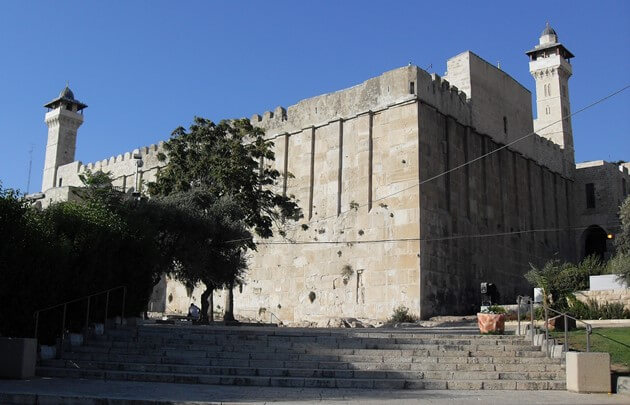
Curiously, the Torah dedicates more verses to describe the purchase of a burial plot for Sarah than all of the rest of her full life of 127 years. What is so significant about this acquisition? And why was the city of Hebron chosen for Sarah’s burial?
Jacob’s House
Isaiah prophesied that in the future era,
“Many nations will come and say, ‘Let us go up to the mountain of God, to the house of the God of Jacob'” (Isaiah 2:3).
Why will the nations be drawn specifically to the “God of Jacob,” and not the God of Abraham or the God of Isaac? The Sages explained:
“Not like Abraham who saw it as a Mountain, nor like Isaac for whom it was a Field, but like Jacob, who called it a House.” (Pesachim 88a)
What did the Sages mean by Mountain, Field, and House? On a simple level, they refer to pivotal events in the lives of the Avot. Abraham’s greatest service of God was the test of the Akeidah that took place on the Mountain of Moriah. Isaac, we are told, would meditate in a Field (Gen. 24:63). And Jacob named the place of awe-inspiring holiness where he dreamed of angels and Divine promises, Beth-El — the House of God.
Yet these locations carry a deeper significance. Mountain, Field, and House are metaphors for different ways to serve God. The service of Abraham and Isaac was a universalistic service, accessible to all. It was like a mountain or an open field; all were welcome to join in. Abraham, the “father of many nations,” sought to repair the sin of Adam and influence all of humanity. His life’s goal was to publicize the name of God for all peoples. Isaac similarly sanctified the name of Heaven throughout the world.
Abraham and Isaac looked outwards, but Jacob focused inwards. In the metaphor of “God’s house,” Jacob limited the holiness of Israel to the framework of his family, his home of twelve sons. He built Beit Yisrael, the House of Israel. Unlike Abraham and Isaac, Jacob’s children all remained within the Jewish people.
While Abraham and Isaac’s influence was inclusive and universal, Jacob’s service was exclusive to Israel. For this reason it is represented by the image of an enclosed house. Surrounded by protective walls, the special sanctity of Israel is safeguarded from negative external influences. “Israel shall dwell securely, alone” (Deut. 33:28).
Separate Holiness
Why must Israel be distanced from the other nations? This isolation prepares the Jewish people for their special mission, and enables them to demonstrate the proper path for the rest of the world. “The nations shall walk by your light” (Isaiah 60:3).
When the nations will aspire to connect to holiness, they will recognize that the sanctity of Israel is separate and distinct. They will say, “Let us go up to the house of Jacob.” Let us go and emulate the distinct holiness of Jacob.
Like Jacob, Sarah recognized the need for this protected holiness. She was the one who demanded that Ishmael be sent away, to remove his negative influence on her son.
And Sarah initiated the process of separating and designating the Land of Israel to the Jewish people. This began with her burial in Hebron.
Hebron, the Future Sanctity of Israel
The very first Jewish acquisition of land in Eretz Yisrael was the purchase of the Machpeilah cave in Hebron. Through the burial of the Patriarchs and Matriarchs, Hebron became a symbol of the initial acquisition of the Land of Israel. We similarly find that, while Hebron was never the permanent capital of Israel, the reign of King David — an era of complete Jewish sovereignty over the Land of Israel — began in Hebron. Hebron signifies the future ownership and holiness of the Land of Israel.
When Abraham was commanded, “Rise, walk the land, through its length and breadth” (Gen. 13:17), where did he go? He immediately settled in Hebron. Hebron is the focal point of potential sanctity of the Land of Israel. Hebron is where future generations take possession of their inheritance and realize their destiny — by virtue of those buried in ancient times.
This concept of future sanctity found expression in the unusual system used to divide up the Land in the time of Joshua. According to one opinion (Baba Batra 117a), the Land of Israel was apportioned according to the Israelites who left Egypt, even though they had died in the desert and never made it to Israel. Usually it is the living who inherit the dead — i.e., the number of living descendants determines how an inheritance is divided. Here, though, it was the other way around: the dead determined how the living would inherit land.
So, too, Sarah’s burial — the very first Jewish burial in the Land of Israel — determined the future inheritance and sanctity of the Land. Sarah designated this land for her descendants. She separated Eretz Yisrael from the rest of the world, just as she separated her son from Ishmael. Sarah initiated the special heritage of the Land and the people of Israel.
(Adapted from Shemu'ot HaRe’iyah 9: Chayei Sarah, 5690/1929)





